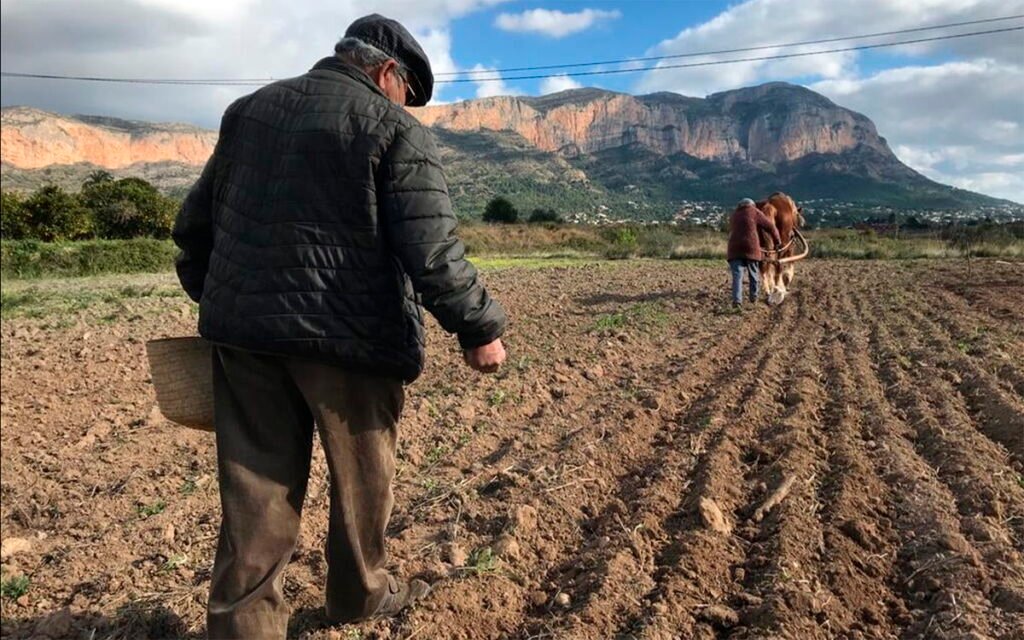Most anticipated events will take place between 23 and 31 August. Credit: Jesus Pobre
Jesús Pobre is gearing up for the highlight of its Agost Cultural festival, an event that blends tradition, music and heritage. Organised by the Eatim and the Associació de Veïns i Veïnes, the programme once again celebrates the ancient culture of raisin-making, with activities that revive agricultural practices dating back centuries.
Although the festival began last week with the Tres Molins, Tres Castells hike and a lantern-making workshop for children, the most anticipated events will take place between August 23 and 31: two escaldades and a concert by Alzira-based folk group Mala.
Jesus Pobre is one of the few towns in the Marina Alta where agricultural traditions remain strong, visible in its landscape, architecture and projects such as the Mercat del Riurau. Among its most emblematic customs is La Escaldà, a grape-scalding process for raisin production that was declared an Intangible Cultural Asset by the Valencian regional government in 2018. Each year, crowds gather at the Riurau del Senyoret – a landmark of this agricultural past – to witness the demonstration, which has its roots in Roman times and remained unchanged since the Middle Ages.
The first main event will be on the morning of Saturday 23 August, with a participatory escaldà in which locals can bring their own grapes to process using the traditional method.
On Friday August 29, music takes centre stage with a performance by Mala, a group from the Ribera region blending British and North American folk with Valencian sounds. Their debut work, Ep.1, was nominated for Best New Album at the 2024 Ovidi Montllor Awards.
Over the years, Agost Cultural has featured notable names in traditional music, including Musicants, Duna, Urbàlia Rurana and singers such as Noèlia Llorens Titana and Hilari Alonso, underscoring its commitment to musical heritage.
The final Sunday August 31, will see the grand escaldà, starting with the lighting of the fire, the filling of the cauldron with water, wild marjoram to give the raisins their golden colour, and soda to speed up the drying process. The day will also feature traditional music, dance and local gastronomy, making it a full celebration of a craft that peaked in the 18th and especially 19th centuries, before declining in the early 20th.
In Jesús Pobre, the tradition lives on – as vibrant as ever.
Stay tuned for the latest news about Europe and Costa Blanca North.

